It hasn’t been that long ago when two American icons fell to its grip and the nation mourned. Aretha Franklin, Queen of Soul, as she was lovingly called, died after a long battle with cancer. John McCain, American war hero, politician and highly admired public servant likewise succumbed to the inevitable fate of the human experience. And then there was George H.W. Bush, 41st president of the United States, fondly known as 41, also yielded to the pangs of death. Who can forget the senseless carnage at the Mother Emmanuel church in Mississippi, the Pittsburg synagogue, the hateful massacre in El Paso, Texas and so many others too numerous to mention. And then there are our own close friends and relatives.
More recently, the nation mourned and the world joined in protest at the senseless murders of George Floyd, Ahmaud Aubry, Brionna Taylor and others. They all, the murdered, murderers, and mourners possess that burning desire for eternal life.
As usual, families, friends and the nation grieve. In each instance, as it is in all the billions of others, pain, grief and unexplainable wonderment grip the hearts of those affected, directly and indirectly. Undoubtedly, it is the heartfelt desire that such will never happen; but no one seems to have a remedy.
Ponce de León sailed halfway around the world, braving the roaring oceans, to find a cure; but he failed to accomplish the object of his arduous journey. The story of this fearless fifteenth century Spanish conquistador is one of the most famous of tales depicting the search for the fountain of youth that would hopefully lead to eternal life. He was not alone. Legend has it that the Greek conqueror, Alexander the Great, who lived almost four hundred years before the birth of Jesus Christ and conquered the then known world, also has his name attached to such a futile search. Long before Ponce de León and Alexander the Great, and ever since then, death continues to boggle the mind and its remedy remains a mystery.
From time immemorial, the quest for life everlasting has been the desire of every soul that has tread our common home-planet earth. The phenomenon of death is germane to all cultures, ages and civilizations. It transcends every speck of the human experience. But why? Could it be that the desire to live forever is an innate endowment in human nature? Whether one believes in the evolutionary moorings of man, subscribes to his instant creation by an Almighty God, or ascribe to any other concept of life’s beginnings, the undeniable reality remains the same–no one wants to die.
With so much destruction, devastation and death engulfing the human family today, all are painfully asking the question, why? No one ever gets used to it. Despite its ever presence with us all, death continues to be an unwelcome intruder. The human mind is totally incapable of grasping the true nature and profundity of this common enemy.
Regardless of one’s philosophy of life, the underpinning common denominator is the yearning for life everlasting. Evolution has no answer for it. Atheists, not believing in any religion (or so they claim) are no less desirous of living forever. Without exception, all seek to avoid the unexplainable corridors of death. Religionists claim to believe that it is certainly possible. However, those beliefs are as numerous as the plethora of religions claiming to have an answer for obtaining eternal life.
Take for example Islam. The followers of Muhammad, the founder of the Muslim religion, believe in the continued existence of the ‘soul’ and a transformed physical existence after death. And what about Hinduism? They believe that a person’s atman (spirit) is permanent and cannot change while the physical body is not permanent and can change. They further teach that the spirit is reincarnated into several bodies until permanency of the body and spirit is achieved. Buddhism has a similar paradigm of life eternal. However, they believe that in our current existence, along with all the others, the spirit would go through are all illusory. Reality steps in when one reaches that highest stage of illusory existence called nirvana–a state in which one experiences total bliss, free from the encumbrances and cares of this life.
And then there is Catholicism which claims to have the answer. It embraces aspects of all the above, capping them off with purgatory. This is essentially a holding pen into which one goes at death until family and loved ones pay the designated amount of money to the system so that their loved ones can be freed from ongoing punishment of purgatory.
Whether it be any of the above or other religious thoughts too numerous to mention, the foundation and prime reason for their existence, despite whatever else they promulgate and proclaim, is to offer eternal life—humanity’s greatest desire. Essentially, all these have categorized death as another form of life. But how valid can that claim be if death in a very special way is the opposite of life? This concept of death is inherently self-contradictory; for certainly, death cannot be life and death all at the same time. Besides, they all have zero evidence to support that which they claim.
Popular Christianity, quite contrary to the Bible in which they claim to believe, do also embrace the idea of eternal life in death. But, true Christianity presents a stark contrast between life and death. The Judeo/Christian Bible consistently presents death as both the direct opposite and enemy of life. Nowhere within its pages can the teaching be found of this most relished notion of ongoing life in death. In this widely misunderstood narrative, the all-time number one bestseller of human beginnings, existence and destiny, absolutely no credence is afforded the widely accepted idea of consciousness in death.
In fact, the Bible teaches against it and categorically states the opposite. One of its main characters, Solomon, revered king of the Jewish nation, declares most affirmatively, “For the living know that they shall die: but the dead know not anything, neither have they any more a reward; for the memory of them is forgotten. Also their love, and their hatred, and their envy, is now perished; neither have they any more a portion forever in anything that is done under the sun” (Ecclesiastes 9:5-6). This is the consistently enduring theme of the Holy Bible.
His father, the Psalmist David admonishes us, “Fret not thyself because of evildoers, neither be thou envious against the workers of iniquity. For they shall soon be cut down like the grass, and wither as the green herb” (Psalms 37:2).
The Patriarch Job knew well the true state of the dead. In pain and anguish, deprived of all his earthly possessions, including his sons and daughters, declared, “O that thou wouldest hide me in the grave, that thou wouldest keep me secret, until thy wrath be past, that thou wouldest appoint me a set time, and remember me! If a man die, shall he live again? all the days of my appointed time will I wait, till my change come. Thou shalt call, and I will answer thee: thou wilt have a desire to the work of thine hands” (Job 14:13-15).
Solomon, David and Job, not unlike all the other Bible writers and servants of Creator God, base their understanding of life’s most powerful, misunderstood and permanent enemy on Jehovah’s revealed testimony through His servant Moses. Under the inspiration of His God, Moses writes, “And the Lord God formed man of the dust of the ground and breathed into his nostrils the breath of life; and man became a living soul (Exodus 2:7). Simply put, humanity consists of the dust of the earth in combination with the breath (life-giving force) of their Creator God. This is what constitutes life. No one has, as untold multitudes believe, an immortal soul.
But what is thing called death? It is the exact opposite of life.Webster describes death as, ‘a permanent cessation of all vital functions’. Simply put, death is the total non-recoverable, complete loss of all ability to experience life as we know it, ultimately resulting in the decomposition of the human body. Wealth cannot prevent it. Status and high position are unable to achieve it. No race, color, caste nor culture is immune from it. Knowledge cannot attain it. Indeed, all will experience it.
Moses explains: “In the sweat of thy face shalt thou eat bread, till thou return unto the ground; for out of it wast thou taken: for dust thou art, and unto dust shalt thou return” (Genesis 3:19). Every other Bible writer after Moses consistently teaches that at death man returns to the dust from whence he came. No record exists in its pages of an immortal soul living on after death.
Again, Solomon’s father, David, considered the greatest king of the ancient Israelites, pleads with his God for the preservation of his life, “For in death there is no remembrance of thee: in the grave who shall give thee thanks? (Psalms 6:5).
Death is not another form of life as untold multitudes teach and believe. This belief has been handed down to the human race by the enemy of our souls. “For God doth know that in the day ye eat thereof, then your eyes shall be opened, and ye shall be as gods, knowing good and evil (Genesis 3:5). Despite the fact that almost the entire world believe this blatant lie, the Bible tells of no one returning from the grave to give an account of their experiences in ‘heaven’—that includes Jesus Christ, the only recorded conqueror of death.
David reiterates, “Put not your trust in princes, nor in the son of man, in whom there is no help. His breath goeth forth, he returneth to his earth; in that very day his thoughts perish” (Psalms 146:3-4).
The famed Protestant Reformer, Martin Luther gives us the source of heretical doctrine. He writes, “Solomon judgeth that the dead are asleep, and feeling nothing at all. For the dead lie there, accounting neither days nor years; but when they are awakened, they shall seem to have slept scarce one minute’ (Martin Luther,Exposition on Solomon’s Booke Called Ecclesiastes, pg.152). He classed that idea of living while dead with the monstrous fables that form part of the Roman dunghill of decretals. (E. Petavel, The Problem of Immortality, pg 255).
What brought about death, anyway? Moses relates that it is all because of the creature man, going against the will of his Creator, God. He relates, “And the Lord God commanded the man, saying, ‘Of every tree of the garden thou mayest freely eat: But of the tree of the knowledge of good and evil, thou shalt not eat of it: for in the day that thou eatest thereof thou shalt surely die” (Genesis 2:16-17). However, Adam’s wife Eve, chose to follow another voice which proclaimed to her, “For God doth know that in the day ye eat thereof, then your eyes shall be opened, and ye shall be as gods, knowing good and evil” (Genesis 3:5). Herein lies the foundation of all notions of death being another form of life.
The Bible describes the act of going contrary to God’s will as sin. More than four thousand years after Moses, the apostle John reiterated, “Whosoever commits sin transgresses also the law: for sin is the transgression of the law” (1 John 3:4). The Bible further firmly states the consequences thereof. Consistent with Moses, John and all the others, the famed apostle elaborates, “For the wages of sin is death (Romans 6:23). However, Paul did not merely repeat his long held Judeo/ Christian belief, but he in fact offered the only plausible antidote to the enemy of all humanity. In the same breath, he fervently exclaimed, “…but the gift of God is eternal life through Jesus Christ our Lord” (Romans 6:23). The contrast between life and death is clearly distinguished. More importantly, the remedy for this enemy is emphatically presented. He is Jesus Christ.
Of all the figures of human history, Jesus Christ is unique in pervasively distinguishing ways. Unlike any other player on the eternal stage of the Drama of the Ages, everything about His life has been remarkably foretold and precisely fulfilled–the time of his birth; the manner of His birth; the place of His birth; when and for how long He would perform His life’s work; when He would die; how He would die and yes, His conquering of death by His bodily resurrection. Time is measured based upon His sojourn on our common planet. He never as much as intimated anything akin to consciousness in death. Rather, He pleads with the human family even today, “For God so loved the world, that he gave his only begotten Son, that whosoever believeth in him should not perish, but have everlasting life. For God sent not his Son into the world to condemn the world; but that the world through him might be saved”
(John 3:16-17).
But saved from what? He saves us from the enemy of John McCain, Aretha Franklin, George Floyd, you and I: death. ‘But they are dead, and you and I will die’, you may say. Yes indeed, but not unlike the almost 400 hundred predictions and fulfilled events of His life, He promises and will fulfill the His promise of the resolution of the death problem in these comforting words, “Let not your heart be troubled: ye believe in God, believe also in me. In my Father’s house are many mansions: if it were not so, I would have told you. I go to prepare a place for you. And if I go and prepare a place for you, I will come again, and receive you unto myself; that where I am, there ye may be also” (John 14:1-3).
His beloved apostle, John, offers a glimpse of that new experience, “And God shall wipe away all tears from their eyes; and there shall be no more death, neither sorrow, nor crying, neither shall there be any more pain: for the former things are passed away” (Revelation 21:4). The apostle Paul concurs, “The last enemy that shall be destroyed is death” (1 Corinthians:15:26). Then, he concludes, “For the Lord himself shall descend from heaven with a shout, with the voice of the archangel, and with the trump of God: and the dead in Christ shall rise first: Then we which are alive and remain shall be caught up together with them in the clouds, to meet the Lord in the air: and so shall we ever be with the Lord. Wherefore comfort one another with these words” (1 Thessalonians 4:16-18).
To the nation, families and friends of H.W., John McCain and Aretha Franklin, Mother Emanuel church, the victims of El Paso, Ahmaud Arbery, and all of us who are affected by this most despicable phenomenon of the human condition, Jesus offers hope, the Blessed Hope.

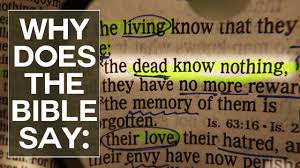
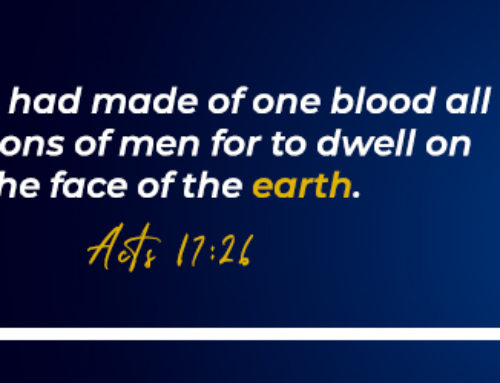


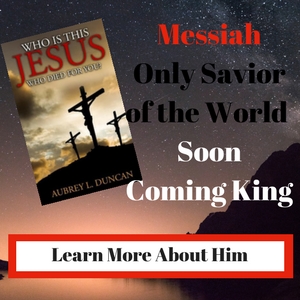
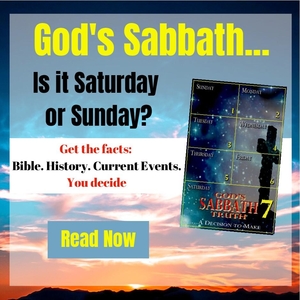
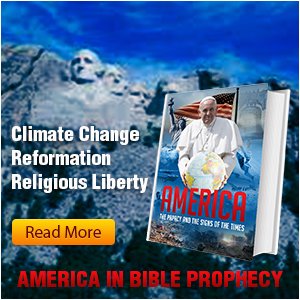
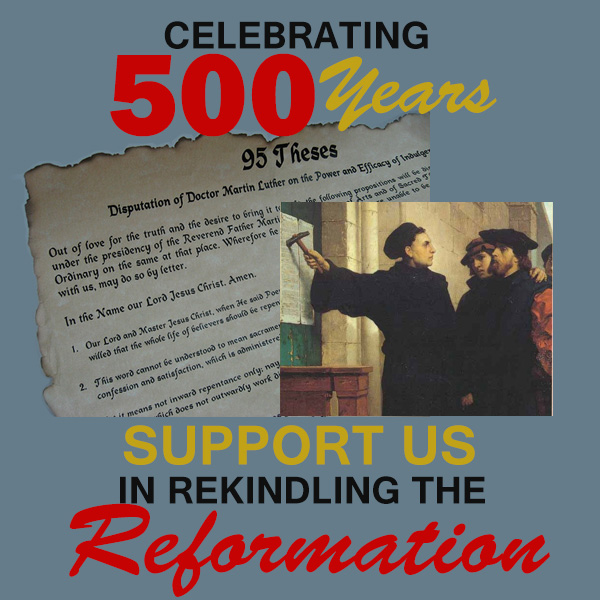
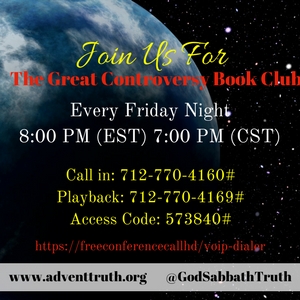
Leave A Comment